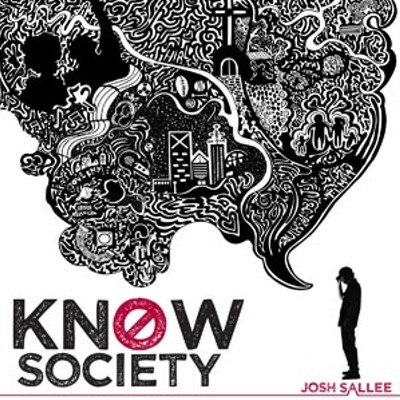Annals of science
America’s foremost advocate for frontal lobotomies as “treatment” for mental disorder, the late Dr. Walter Freeman, performed an estimated 3,500 lobotomies during the 1940s and 1950s before opposition finally solidified against him, according to a December 2013 investigation by The Wall Street Journal. At the peak of his influence, he was so confident that he demonstrated the procedure to skeptics by hammering an icepick (“from his own kitchen,” the Journal reported) into both eye sockets of an electrical shocked patient and “toggling” the picks around the brain tissue, certain that he was severing “correctly.” For years, Freeman (a neurologist untrained in surgery) marshaled positive feedback from enough patients and families for the procedure to survive criticism, and he spent his final years (until his death in 1972) securing patient testimonials to “prove” the validity of lobotomies.
Cultural diversity
Each Nov. 1 is a day (or two) of craziness in the isolated mountain village of Todos Santos Cuchumatanes, Guatemala, where Mayan tradition commands continuous horse races through town, jockeyed by increasingly drunk riders, until only a sober-enough winner remains. Collisions occur in the Race of the Souls, and occasionally someone dies, but the misfortune is met with a collective shrug and regarded as a spiritual offering for fertile crops during the coming year, according to an eyewitness this year reporting for Vice. com. Ironically, for the rest of the year, the village is largely alcohol-free except for that on hand to sell to tourists. — Since the 13th century, sheepherders in Spain have had the right (still honored) to use 78,000 miles of paths in the country for seasonal flock migrations — even some streets of Madrid, including a crossing of Puerta del Sol, described as Madrid’s Times Square. The shepherds pay a customary, token duty, which, according to an October Associated Press dispatch, the government proudly accepts, given the prominence of Spain’s native Merino sheep breed in the world’s wool market. — Postal worker Umakant Mishra, of Kanpur city in Uttar Pradesh, India, was freed by a criminal court in December — 2 years after he was charged when a money-order account turned up 92 cents short. Mishra was called to judicial hearings 348 times over the years, but it was not until recently that the government admitted it had no witnesses for the court to hear against him. A December BBC News dispatch reported, citing “official” figures, that more than 30 million cases are pending in Indian courts.
latest religious messages
The evangelical educational organization Answers in Genesis, which has established a series of children’s books and a creationist museum, announced recently that it would enter the bond market to fund its most ambitious project — a creationist amusement park centered around a “life-size” reconstruction of Noah’s Ark, for which it estimates it will need at least $73 million from investors. Issuing bonds might be seen as desperate since AiG has raised only $13.6 million privately since proposing the Ark-park, but a Georgetown University finance professor, contacted by Slate.com, suggested that the bonds’ terms place them in the high-risk “junk bond” category (perhaps better described as “faith-based,” having virtually no resale value and without an independent bond rating).
Note:
The lead story (about Edward Teller) in News of the Weird dated for Dec. 22, 2013, was a summary of a piece in the Kinston, N.C., Free Press from which I took some facts more seriously than the writer intended. Falling for a hoax is an extraordinarily rare event in the 26-year, 25,000-story history of News of the Weird, but there it is. I apologize to readers and editors, and I vow to double-down in the future on my already-extreme skepticism.









